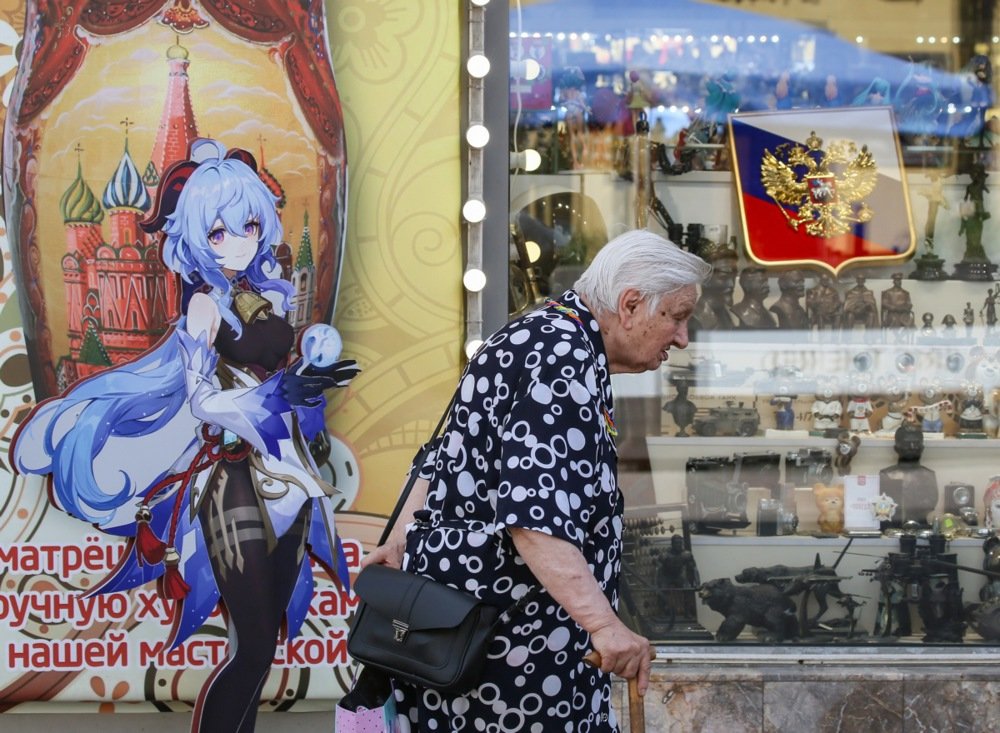
An elderly woman walks past a cardboard depicting an anime character near a shop window in Moscow, 7 June 2024. EPA-EFE/YURI KOCHETKOV
Russia’s media watchdog, Roskomnadzor, blocked several anime-themed websites on Wednesday in an apparent attempt to censor popular anime series and online communities, independent news outlet Mediazona reported.
The blocked sites include a fan website for the popular Japanese anime series Naruto, as well as several online libraries hosting anime content. According to DownDetector, a website that monitors website accessibility, the websites in question were blocked in Russia at around 6pm on Wednesday.
YummyAnime, one of the online libraries blocked by Roskomnadzor, said on its Telegram channel that the website’s team had received no prior warning from Russian censors, but speculated that the reason for the move could be the ongoing Russian crackdown on so-called “LGBT propaganda”.
The channel also revealed that YummyAnime had been forced to remove certain anime series with queer themes from the website in the past to avoid prosecution, but that Roskomnadzor had nevertheless decided to block the entire website.
Roskomnadzor has not commented on the move, though Russian ultraconservative lawmaker Vitaly Milonov hailed it, telling state-affiliated news outlet News.ru on Thursday that “a huge number” of anime series contained “banned pornographic content”.
If the fresh crackdown on the anime community does indeed turn out to be part of the Russian government’s campaign against content it deems to be “LGBT-related” or that goes against so-called “traditional Russian values”, it won’t be the first incident of its kind.
In October, lawmakers called on the government to recognise various anthropomorphic subcultures, including furries, as “LGBT propaganda”, with Tatarstan’s Commissioner for Children’s Rights Irina Volynets alleging that they were being used to lure children and adolescents into the LGBT community.
